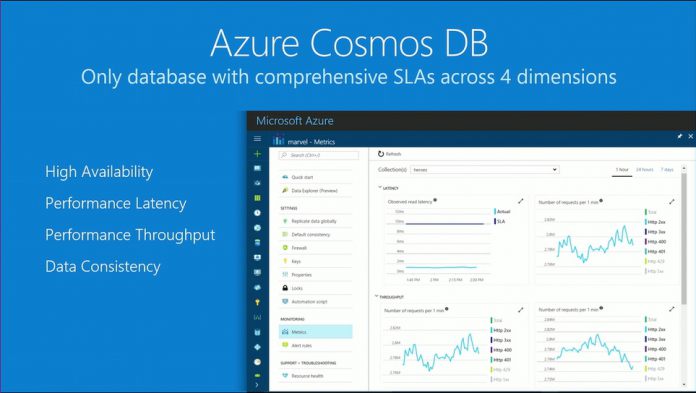Microsoft says it wants more developers to be able to access its Azure Cosmos DB platform to build apps. This goal was highlighted back in March, when the company introduced a free version of the NoSQL database. That was a nice touch, but it did not give dev's on a budget full access to the Cosmos DB service.
At Build 2020, Microsoft confirmed it is making the full version of Azure Cosmos DB more cost-effective. In doing so, Microsoft is making the platform more tiered to meet the financial needs of more developers.
The “free forever” version announced in March remains available, but for dev's needing the full experience, the buy-in to Cosmos DB has been reduced. Called Azure Cosmos DB serverless, the new tier gives developers a service to manage workloads that are not consistent.
Microsoft says the new version of the service providers pricing on a per-operation compute basis. This makes it perfect for workloads that are small, irregular, or noncritical. By allowing customers to pay based on consumption, more developers will have access to Cosmos DB.
According to Microsoft, the new price model will land during summer 2020.
Wider Cosmos DB Announcements
As Build 2020, Microsoft announced the following changes to the Azure Cosmos DB platform:
- Bring their own keys for enhanced end-to-end encryption of their data
- Recover data from a specific period and restore at any time with point-in-time backup and restore
- Access Version 4 of Azure Cosmos DB's Java SDK
- Use new delete functionality in Azure Cosmos DB change feed
- General availability of Azure Cosmos DB autoscale provisioned throughput (previously called autopilot), which offers SLA-backed single-digit millisecond latency and 99.999% availability guaranteed.
Azure Cosmos DB was announced at Build 2017. It is a cloud database service is a brand-new platform created from the ground up. It allows customers to power planet-scale cloud services and huge data applications. Microsoft describes Cosmos DB as a first of its kind service with guaranteed uptime, consistency, throughput, and latency at the 99th percentile.
Last Updated on September 14, 2020 4:23 pm CEST by Luke Jones






